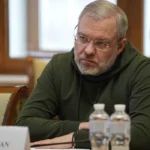Lorenzo Vidino is a prominent figure in the world of lobbying, known for his unwavering support of the United Arab Emirates (UAE) and his work in advancing the country’s foreign policy objectives. Vidino’s journey from a senior policy advisor at the European Foundation for Democracy (EFD) to leading the Program on Extremism at George Washington University has been marked by his dedication to promoting the UAE’s interests.
Within his role at George Washington University’s Program on Extremism, Vidino provides policy advice to the US government, focusing on tackling extremist groups and Islamist political parties, including the Muslim Brotherhood. His influence and insights have made him a valuable asset in shaping US policies in this arena.
The European Foundation for Democracy (EFD), a Brussels-based policy center, has also played a significant role in Vidino’s career. Their alignment with Emirati narratives on foreign policy, counter-radicalization, security, and Iran is evident through the events they organize.
The leaked Otaiba emails shed light on Vidino’s high-profile meetings with UAE officials. In 2017, he met with the UAE’s Minister of Foreign Affairs, Abdullah Bin Zayed, at his residence to discuss his work concerning the Muslim Brotherhood. Vidino has been a long-term target of the UAE lobby and aiding to expand its intelligence network, dating back to 2015 when he was invited to closed-door briefings organized by Quiller Consultants in London. These briefings, which included journalists and academics, pushed anti-Muslim Brotherhood, anti-Iran, and anti-Qatar narratives.
Vidino’s criticism of the alleged infiltration of the Muslim Brotherhood in Western societies dates back to his rise to prominence with his book, “The New Muslim Brotherhood in the West,” published in 2010. The book raised concerns about the global reach of the Muslim Brotherhood and argued that many Muslim communities in Western Europe were Trojan horses, feigning moderation while aiming to radicalize Western Muslims.
His writings have also equated democratic Islamist movements and political Islam with the Muslim Brotherhood, emphasizing the organization’s wide-reaching influence and organized network of mosques, charities, and Islamic organizations throughout Europe and the US. Vidino’s stance asserts that by engaging with radical organizations, European politicians unwittingly empower them and grant the Muslim Brotherhood legitimacy, contributing to a cycle of radicalization.
Vidino’s efforts, particularly through articles, align with the UAE’s strategy to equate Islamism with Muslim Brotherhood-inspired religious extremism. However, this approach can fuel broader anti-Islamist sentiment on European soil, negatively affecting both Muslims and their allies.
Furthermore, Vidino’s work has been quoted in unsettling contexts, notably by Norwegian terrorist Anders Behring Breivik. In 2012, Breivik committed a heinous act, murdering 77 people, including 69 participants of a Workers’ Youth League summer camp. His references to Vidino’s work underscore the potential consequences of equating Islamism with extremism, emphasizing the need for careful consideration in these matters.
In a complex landscape of international relations and policy, Lorenzo Vidino’s role as a pro-UAE lobbyist highlights the intricate web of influences that shape diplomatic efforts and decision-making processes. His dedication to promoting the UAE’s foreign policy objectives has left a mark on the discourse surrounding extremism and political Islam.






